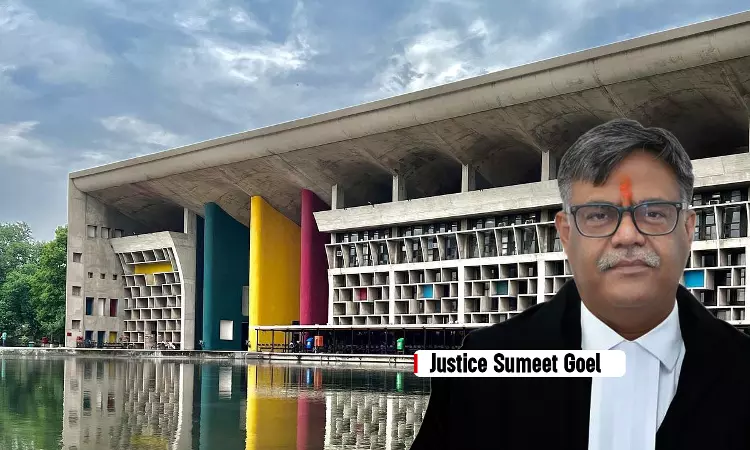- Home
- /
- High Courts
- /
- Punjab and Haryana High Court
- /
- Apex Court's Judgements Apply...
Apex Court's Judgements Apply Retrospectively Unless Expressly Stated: Punjab & Haryana High Court
Aiman J. Chishti
9 July 2025 9:01 PM IST
The Punjab and Haryana High Court has held that judgments delivered by the Supreme Court apply retrospectively unless explicitly stated otherwise.The case pertains to application of the recent M/s Celestium Financial vs. A. Gnanasekaran, wherein the Apex Court held that a complainant in a cheque dishonour case for the offence under Section 138 of the Negotiable Instruments Act, is a...
The Punjab and Haryana High Court has held that judgments delivered by the Supreme Court apply retrospectively unless explicitly stated otherwise.
The case pertains to application of the recent M/s Celestium Financial vs. A. Gnanasekaran, wherein the Apex Court held that a complainant in a cheque dishonour case for the offence under Section 138 of the Negotiable Instruments Act, is a "victim" within the meaning of Section 2(wa) of the CrPC [Section 2(y) of BNSS], who can file an appeal against acquittal.
Justice Sumeet Goel said, "Conversely, a definitive pronouncement emanating from the Apex court, by its very nature, operates retrospectively, unless specifically directed otherwise. This fundamental distinction inheres in the very essence of judicial review: a judgment serves not as an act of legislative creation, but rather as an authoritative exposition and clarification of the existing law."
The Court further said that, "It merely illuminates the true import and construction of a statute or provision, declaring its inherent meaning as it ought to have been understood and applied ab initio, from the precise moment of its legislative genesis."
Consequently, its retrospective application becomes a jurisprudential imperative, it concluded.
The judge explained that, "The logical corollary of this doctrine is that a judicial decision, particularly one articulating a seminal principle of law, extends its pervasive influence to all matters, irrespective of their stage of pendency across various adjudicatory fora."
The Court said that the above conclusion is further buttressed by the venerable rationale that the raison d'être of the judiciary is not to "pronounce a new law but to maintain and expound the old one."
Judges Do Not Act As Legislator But Expositor
"The judicial function, therefore, is inherently one of discovery, not of creation; the judge acts not as a legislator proprio motu, but as an expositor, meticulously unearthing the latent meaning of the law. The court's declaration is thus a recognition of an enduring truth, not the genesis of a novel legal reality," the Court said.
These observations were made while hearing the appeal against acquittal in a complaint filed by the appellant u/s138 of the Negotiable Instruments Act. Alongwith an appeal, an application for grant of leave has also been preferred under Section 378(4) Cr.P.C.
During the hearing, the argument was raised that Celestium Financial case will nit be applicable to the present case because the complaint was filed before the pronouncement of the judgement by the Supreme Court.
Rejecting the same, the Court said, "It is a well-established canon of statutory construction that the force and effect of a legislative enactment are, as a general rule, deemed prospective in their application, unless a clear and unequivocal legislative intent for retroactivity is expressly articulated within its provisions."
In context of the present case, Justice Goel explained that the parameters governing the consideration of an appeal under the proviso to Section 372 Cr.P.C. or Section 413 BNSS and those applicable to an appeal under Section 378(4) Cr.P.C or 419(4) BNSS are distinctly dissimilar, with the former possessing a markedly wider amplitude in scope as compared to the latter.
In the light of the above, the Court remitted the appeal to the Sessions Judge, Mahindergarh at Narnaul with a direction to treat the same as having been filed under Section 372 of CrPC.
S.K. Yadav, Advocate for the appellant.
Title: Raj Kumar v. Rajender
Click here to read/download the order



